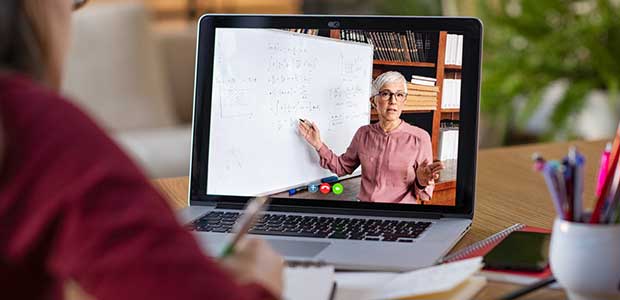
Teachers Have Concerns about the School Year, and Many Want to Start it Online
As the school year begins, a national poll and NPR article show that most teachers have significant concern about returning to the classroom, and most prefer to start the year online.
Growing discussions over teachers’ safety over the summer have made many public health officials concerned about outbreaks in schools, and many teachers are concerned for their own safety. Recent efforts to legally consider teachers as “essential workers” have even gained traction.
While teachers are worried about students’ health, their own health and how social distancing will happen in the classroom and at school, many also are worried about the detriment that online schooling will have on students’ development and learning.
However, these concerns for student development persist, even with teachers’ concern for their own safety and health. Eighty-two percent of K-12 teachers say they are concerned about returning to in-person teaching this fall, and two-thirds prefer to teach remotely to start. Another recent, national poll found that two-thirds of respondents thinks schools in their area should be primarily remote, including 62 percent of parents children under 18.
The poll was conducted between July 21-24 and included 505 participants. Half teach at low-income schools.
Concerns about returning to in-person teaching has to do with a number of topics including: teachers’ concern for their own health, general worry about the difficulty of enforcing social distancing and parents’ concern for their children’s’ health.
In fact, 77 percent of teachers said they were concerned about their own health and contracting the virus. About 66 percent preferred primarily remote, distance learning. Plus, according to the U.S. Department of Education, almost 30 percent of teachers are 50 years or older, which puts them at higher risk of COVID complications.
The poll also indicated that 78 percent of teachers said they are concerned about accessing sufficient personal protective equipment and cleaning materials for the classroom. Many teachers, especially in lower income schools, are responsible for cleaning their own classrooms—not custodial staff.
While health is part of the concern, many teachers are also worried about their ability to connect with students wearing a mask; 84 percent say they are likely going to have difficulty enforcing social distancing among students.
“I want to go back, and I don't want to go back,” says Felicia Tinsley, who teaches elementary school students with special needs in Chester County, S.C. She expects to navigate a steep learning curve with her students. “You have to teach kids how to wear masks properly and teach them ‘6 feet apart.’…We’re going to be doing, basically, instructions on how to operate in our new society.”
Additionally, many teachers feel much more prepared to teach remotely in the fall than they did in the spring when schools abruptly closed. Seventy percent even think their school district is moving in the right direction with online or distance-learning, and most have undergone remote teaching training over the summer.
Many teachers also worry about the way masks and social distancing will affect students’ social and community experience. One teacher said, “We won’t be able to allow them to sit with their friends. There’s not going to be chances really for collaboration, where they get to work in groups and have those real rich conversations that they need to have, especially in language arts.”
So while many teachers prefer online or remote teaching, they know that that decision will greatly hinder their ability to reach and teach students. Fifty-five percent say they cannot properly do their job online, and 84 percent say online learning creates gaps in opportunities for students. Eighty-three percent say they are concerned about connecting with students they have never met before.
While this school year causes anxiety and concern for teachers, students and families in the school systems, 70 percent of participants said that if they could choose a career all over again, they would still choose teaching. Just 16 percent say they would leave the profession if they were called back to the classroom.
Teachers are essential to our society, and our children. During the coronavirus pandemic, many say we need to treat them as essential, too.